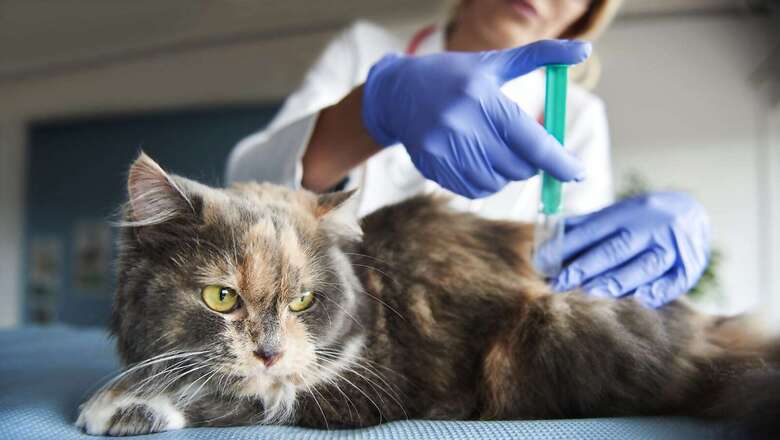
views
Veterinarians, animal welfare organisations, and NGOs advocate the benefits of sterilisation for animals. Hundreds of thousands of unwanted dogs, cats, puppies, and kittens are euthanised annually. Thus, sterilisation reduces and eliminates several health problems, increasing their lifespan.
Spaying and neutering our canine companions decreases the risk of significant health problems and lowers the prevalence of canine overpopulation and homelessness.
What is Sterilisation?
Animals undergo a special procedure called sterilisation. “Neutering and spaying are surgical treatments intended to prevent pet reproduction. The surgical removal of a male animal’s testicles is known as neutering. The surgical removal of a female animal’s reproductive organs is known as spaying,” says Dr B.R.Thakur, B.V.Sc. & A.H., M.V.Sc. (Nag.), Vet. Physician & Surgeon, Dr. Thakur’s Pet Hospital, Nashik
The animals are sedated for both surgeries. Your veterinarian might observe the pet for a few hours or days, depending on the age, size, health, and response to the anaesthetics. It’s a safe and simple procedure that helps keep pet populations under control and makes pets healthier and happier.
The need for Pet Sterilization
- Sterilising your pet reduces or eliminates the chance of genital disorders. “Several reproductive problems may arise when pets reach maturity, causing them a great deal of distress. Female animal companions are more likely to experience difficult labour, ovarian cysts, uterine infections (such as pyometra and metritis), and breast tumours, more than 90% of which are cancerous if they are not spayed. These risks are eliminated when pet parents have spayed or neutered their furry babies,” adds Dr Thakur.
- Sterilisation is a preventative measure that can keep your pet healthy and stop the spread of disease to other animals by reducing the chance of exposure to harmful germs. Pet sterilisation has additional health benefits, including a decreased likelihood of spreading disease. Even if your pet has been vaccinated, they still run the risk of contracting an infectious disease from another animal if they have not been sterilised.
- “Pets are less likely to contract communicable diseases after being neutered. Diseases like feline leukaemia, feline immunodeficiency virus, and canine parvovirus are more common in animals who are unneutered. Having devastating effects on pets, these diseases can spread to other animals and even humans,” opines Dr Thakur.
- Sterilisation reduces undesirable behaviours like aggression, territorial marking, and wandering. These behaviours can be frustrating and even dangerous for your pet and its owner. Thus, pet parents are advised to prevent these undesirable behaviours and raise an obedient lovable pet.
When Your Pet Should Be Spayed or Neutered
Dr Thakur says the breed and general health of your pet will determine when it should be sterilised:
- Owned cats should be altered before they are 5 months old as they can become pregnant as early as four months.
- Owned female dogs should be spayed before they are 5 months old.
- Male dogs of all breeds, small, medium, and large, should be neutered before they turn five months old.
- Owned giant breed male dogs who are house pets should be neutered after growth stops, between 12 to 15 months of age due to orthopaedic issues
Hence, pet sterilisation is a safe, simple, and effective way to ensure the health and well-being of our furry friends. By reducing the risk of reproductive disorders, preventing the spread of diseases, and reducing undesirable behaviours. Thus, if you’re a pet parent, consider the many benefits of pet sterilisation and make the decision that’s best for you and your furry friend.
A few adjustments, particularly to their sterilisation and nutrition, allows your pets to live better and longer lives. A specific diet is therefore essential to help limit weight gain, and cater to their new physiological condition, eating behaviour, and, of course, their age!
Take your pet to the vet and get a consultation about your pet’s sterilization and precaution related to it.
Read all the Latest Lifestyle News here


















Comments
0 comment